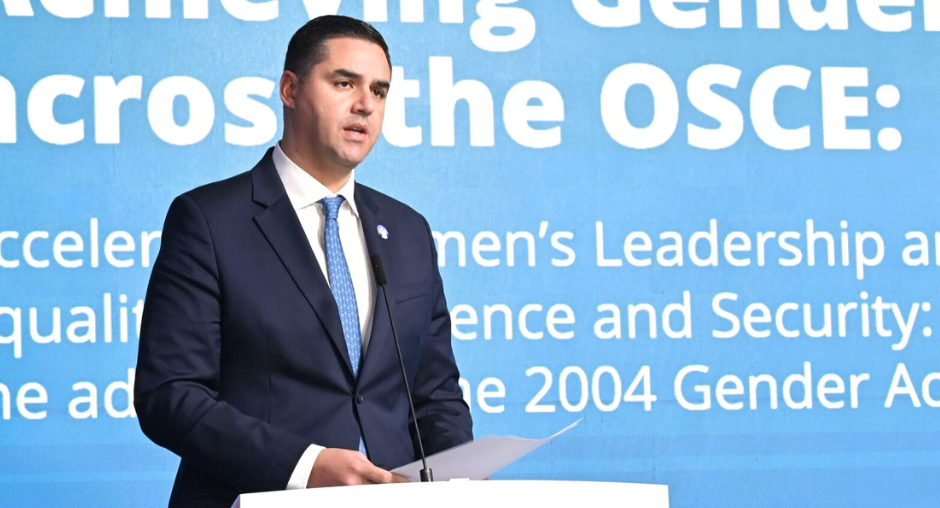In 2019, a 50% VAT hike slowed Nigeria’s economy, pushed millions into poverty, and failed to deliver meaningful revenue growth. Today, new VAT reforms risk repeating these mistakes, exacerbating inequality and economic hardship. Here’s why they must be stopped—and what smarter alternatives could look like.
1. The Problem with VAT
Value-Added Tax (VAT) is inherently regressive, disproportionately burdening the poor and middle class. Unlike progressive income taxes, which scale with earnings, VAT applies uniformly to goods and services, meaning poorer households pay a higher percentage of their income compared to the wealthy. The VAT system taxes consumption equally across income levels. This means that poor households spend a higher percentage of their income on goods subject to VAT, leaving them with less for other essentials. This is especially harmful in Nigeria, where poverty and food insecurity are rampant— close to 90 million Nigerians are multi-dimensionally poor. Globally, VAT’s regressive nature is well-documented:
- In Nigeria, evidence shows VAT negatively impacts households’ spendingpatterns, while progressive income tax strengthens purchasing power parity (PPP).
- VAT has failed to justify its purpose in Nigeria, contributing more to government expenditures than directly benefiting citizens. Following the 50% VAT increase in 2019 (from 5% to 7.5%), the resulting economic activity slowed, with collections rising just 8.5% in H1 2020—an underwhelming return, given the significant tax hike. This meager return suggests that further VAT hikes will harm consumption and growth.
- There is a positive correlation between VAT hikes and unemployment rates, indicating contractionary effects on job markets. Inflation compounds these effects, as VAT-driven price increases shrink household purchasing power.
- Regional comparisons reveal that Nigeria’s VAT regime disproportionately impacts households compared to countries like Kenya. This disparity stems from economic inequality and poor policy design, highlighting the need for reforms tailored to Nigeria’s unique challenges.
- In Indonesia, a VAT hike weakened the middle class’s purchasing power, risking economic contraction.
2. Bad Policy is built on wrong arguments
Advocates for a VAT increase in Nigeria often point to its comparatively low rate (7.5%) relative to neighboring countries like Benin (18%), Togo (18%), Kenya (16%), and South Africa (15%). However, this argument ignores critical economic, social, and structural differences that make a direct comparison flawed and potentially misleading.
- Nigeria’s inflation rate, at approximately 33%, dwarfs those of Benin (3.6%), Togo (6.3%), Kenya (6.7%), and South Africa (5.3%).
- While Nigeria’s VAT rate is lower at 7.5%, its corporate income tax (30%) and personal income tax (up to 24%) are comparable or higher than in other nations.
The chart below illustrates how Nigeria’s inflation undermines comparisons based solely on VAT rates.

Unlike these other countries, where stable inflation helps absorb tax increases, Nigerians are already struggling with skyrocketing food and energy prices. According to the World Bank-supported Nigeria General Household Survey, between 2018/19 and 2023, the proportion of Nigerians unable to afford basic food items skyrocketed. By 2024, nearly two-thirds of Nigerians were eating less than they should, with many anxious about running out of basic provisions. A higher VAT rate in an already high risk, inflationary environment would exacerbate the cost of living crisis and could exacerbate social unrest.
In countries like South Africa, robust social safety nets and targeted subsidies help cushion this burden. Nigeria lacks such mechanisms, meaning any VAT hike would deepen inequality and push more Nigerians into poverty.
While exemptions for basic food items are a step in the right direction, they fail to account for VAT applied at earlier stages in the supply chain. For example, transportation, packaging, and storage costs for food are VAT-inclusive, meaning exemptions for the end product do little to mitigate the broader impact. These hidden costs ultimately inflate prices for end consumers, undermining the exemptions’ intent.
3. A Smarter V̶A̶T̶ Tax Strategy
The argument for a VAT hike based on international comparisons fails to account for Nigeria’s unique economic vulnerabilities. Raising VAT in this context will harm the very people the government claims to help. Instead, reforms should prioritize fairness, efficiency, and sustainable revenue generation. Nigeria must chart its own path, addressing inflation, revenue mismanagement, and economic inequality before considering higher consumption taxes. Instead of focusing on VAT, Nigeria should explore alternatives, such as tightening government expenditures and improving revenue collection from income taxes. Argentina’s fiscal reforms serve as a case study—its government cut spending and achieved a budget surplus, underscoring the potential of prioritizing fiscal discipline over expansionary measures. In contrast, Nigeria’s government has adopted an expansionary fiscal stance and deficit-driven fiscal policy, raising taxes to sustain unsustainable expenditures. This approach is akin to “milking a dead cow,” extracting from a populace already burdened by inflation and poverty. We must stop fiscal expansion that funds inefficiency. If Nigeria does not adopt a radical reform to devolve VAT collection to the states (as some have proposed), the federal system can still be improved by:
- Targeting Non-Essentials: Non-essential commodities, such as luxury cars, high-end electronics, premium human hair extensions, and harmful substances like soda, alcohol, and tobacco, should attract higher VAT rates. This progressive structure ensures the wealthier and the indulgent bear a greater burden, aligning with equity principles.
- Expanding Non-VAT Sectors: Sectors that drive investment and job creation, such as entertainment, creative industry, housing, and technology, should be exempted from VAT to encourage investment and innovation and stimulate growth. For example, Indonesia successfully uses differentiated VAT rates to balance fiscal needs with economic growth. It is also important to define and expand the list of exempt goods to include critical inputs (e.g., transport costs for food). This avoids the hidden VAT burden that current exemptions fail to address.
- Expanding Income Taxes Over VAT: The focus should shift to growing the income tax base, which remains the world’s highest-yielding revenue source. Argentina provides a valuable lesson during its recent reforms: it lowered the taxable income threshold, bringing more individuals into the tax net while maintaining a progressive structure. This counterintuitive move increased government revenue and boosted public spending, ultimately stimulating broader economic activity. Income taxes remain Nigeria’s most significant source of revenue. A progressive reform to include more earners while improving collection efficiency could yield far greater returns than a VAT hike. Research shows that VAT revenue in Nigeria has a negligible positive impact on household purchasing power, while direct income taxes like Personal Income Tax (PIT) are more progressive and equitable.
4. Nigeria must grow the pie
Contrary to the heated nature of the arguments we have had, there are times (in his past life) I agree with Tinubu’s tax Czar, Taiwo Oyedele. In an essay during his time at PwC, Mr. Oyedele said that raising VAT in isolation only burdens the populace further, and we need to “grow the pie” – this VAT reform proposal by the government he serves betrays this foundational principle. Every Nigerian knows this: the Tinubu administration has been profligate with public funds. Our approach to taxation must shift from revenue maximization to fostering economic opportunity. Expanding the income tax net by formalizing more of the informal sector, ensuring progressivity, and incentivizing compliance can achieve this. Simultaneously, maintaining a stable VAT regime that protects essentials and promotes targeted exemptions will spur investment and consumption growth.
Grow Nigerians to grow the revenue: Nigeria’s fiscal deficit continues to grow as the government prioritizes spending increases over addressing inefficiencies. Argentina’s experience shows that gutting government waste can lead to transformative outcomes. By cutting wasteful government expenditure and gutting the bureaucracy, Argentina achieved:
- The country’s first surplus in 12 years.
- Inflation fell from 26% to 3.5%, while wages increased, boosting household consumption and, by extension, indirect tax collections like VAT.
Invest VAT revenue to spur growth: Nigeria can dedicate a portion of VAT revenue to high-impact investments in infrastructure, technology, and small-business development. It works.
- Indonesia used VAT revenues to fund infrastructure development, leading to improved logistics and trade competitiveness.
- South Korea allocated VAT collections to tech innovation grants, which fostered start-ups and job creation.
- Brazil earmarked VAT revenues for education, with direct investments in teacher training and school infrastructure yielding long-term economic benefits.
5. End the ‘Taxation Without Representation’ Problem
The foundational principle of any equitable tax system is that citizens must see the benefits of their contributions. However, in Nigeria, this social contract is flagrantly violated. Taxpayers witness their hard-earned naira funding bloated bureaucracies, political patronage systems, and inefficient government operations, all while public services crumble. This disconnect has fueled skepticism and resentment, undermining the “legitimacy” of the proposed tax reforms.
Here is the bottom line: taxation is more than a revenue tool. An effective tax system with disciplined fiscal measures can drive opportunity and prosperity. Nigerians deserve a smarter VAT regime that serves their aspirations, not one that will exacerbate their struggles.
 Donate
Donate



